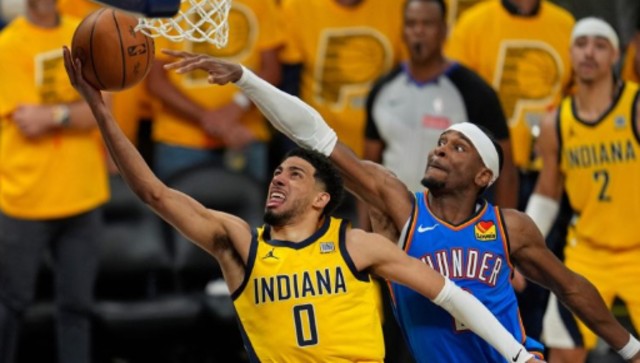
Imane Khelif of Algeria is pictured after winning her preliminary boxing match against Angela Carini of Italy in Paris on August 1, 2024. (AP Photo)
Imane Khelif from Algeria secured a victory in her opening boxing match at the Paris Olympics on Thursday when her opponent, Italy’s Angela Carini, withdrew from the fight after just 46 seconds. This match, which took place at the North Paris Arena, was Khelif’s first bout of the tournament and ended abruptly due to Carini’s decision to leave the ring.
Khelif’s participation at these Olympics has stirred controversy, following her disqualification from the 2023 world championships due to a failed gender eligibility test. Despite the debates surrounding her inclusion, the 25-year-old boxer showed up to a warm reception from the crowd, although the sudden end of the match left many puzzled.
Carini, who had only managed to exchange a few punches with Khelif before quitting, appeared distressed as she left the ring. Her headgear came loose at least once during the brief encounter, and she was seen crying on the mat. After the match, Carini revealed that she experienced severe pain in her nose after the initial exchanges. She insisted that her decision to stop was not a protest against Khelif but a response to her own physical discomfort.
“I felt a severe pain in my nose, and with the maturity of a boxer, I said ‘enough,’ because I didn’t want to, I didn’t want to, I couldn’t finish the match,” Carini explained. She stressed that her decision was purely personal and not related to any political or ethical stance.
Khelif, a decorated amateur boxer who earned a silver medal at the 2022 International Boxing Association (IBA) world championships, did not comment after her victory. Her disqualification last year for elevated testosterone levels had already cast a shadow over her Olympic appearance. Despite this, she remains a formidable presence in the ring.
Angela Carini’s abrupt exit has ignited discussions about Khelif’s participation in the Olympics. Carini’s emotional response highlighted the personal and physical challenges boxers face, rather than the broader debates on eligibility.
The controversy surrounding Khelif echoes the broader issues faced by athletes in combat sports regarding gender eligibility. Similar discussions have surfaced with other athletes, such as Taiwan's Lin Yu-ting, who also faced scrutiny related to gender eligibility but was allowed to compete in Paris.
Khelif’s victory and the subsequent reactions from her opponent and spectators illustrate the complexities of modern Olympic boxing. The International Olympic Committee (IOC), which oversees boxing due to the International Boxing Association's suspension, has affirmed that all athletes competing are in compliance with the existing eligibility rules.
As the Paris Games continue, Khelif’s journey remains under the spotlight. She is scheduled to fight again on Saturday and is also a contender in the women’s medley relay. Meanwhile, the debate over gender eligibility in sports continues, with various voices calling for a balance between fairness and inclusion.















